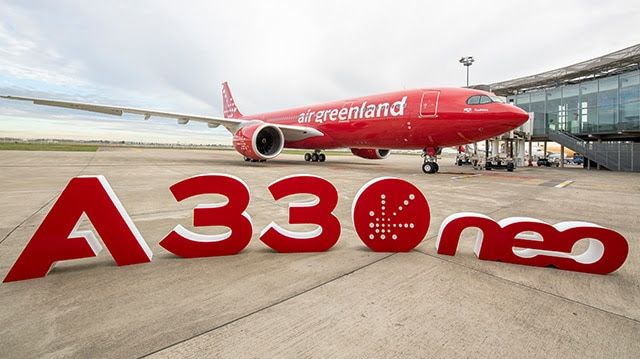Rolls-Royce congratulates Air Greenland on the delivery of its first A330neo powered by the trent 7000
UK. On December 7, Rolls-Royce joined Air Greenland and Airbus in celebrating the delivery of the airline’s first A330neo, which is powered by Rolls-Royce Trent 7000 engines. The aircraft is scheduled to enter service on the 19thof December. Air Greenland will first deploy the A330neo between its hub in Greenland and Denmark, adding North American and European routes later.

To support Air Greenland’s sustainability strategy the delivery flight will be powered by a 30 per cent blend of sustainable aviation fuel (SAF). The aircraft will depart from Airbus’ Delivery Centre in Toulouse, France, and land at Kangerlussuaq Airport, the main hub of Air Greenland.
As the exclusive engine for the A330neo, the Trent 7000 is the latest engine in the Trent family and has recently achieved one million engine flying hours.
Jacob Nitter Sørensen, CEO, Air Greenland, said: “The Trent 7000 is the latest in engine technology and will ensure Air Greenland has a modern, efficient, and the most sustainable platform possible for years to come.”
Ewen McDonald, Chief Customer Officer, Rolls-Royce Civil Aerospace, said: “We are proud to power Air Greenland’s first A330neo, which is not only a great addition to their fleet but to Greenland overall. The inaugural flight shows Air Greenland’s commitment to building a more sustainable operation and we are committed to supporting them in operating this excellent aircraft, to bring sustainability, efficiency, and connectivity.”
The Trent 7000, which first entered service in November 2018, builds on the unsurpassed performance of the Trent 700 combined with the engine technology of the Trent XWB. Benefitting from the highest bypass ratio of any Trent engine, the Trent 7000 offers a 14 per cent fuel burn improvement per seat compared to its predecessor and will significantly reduce aircraft noise. It is already certified to operate on a 50 per cent blend of Sustainable Aviation Fuels (SAF) and will be certified to run on 100 per cent SAF soon.





